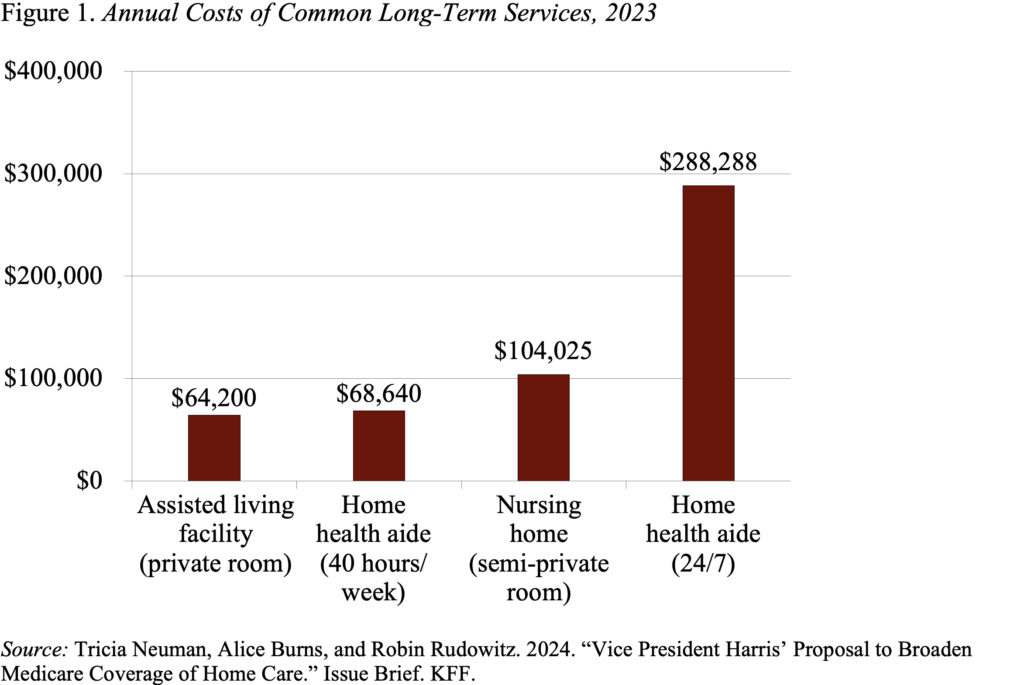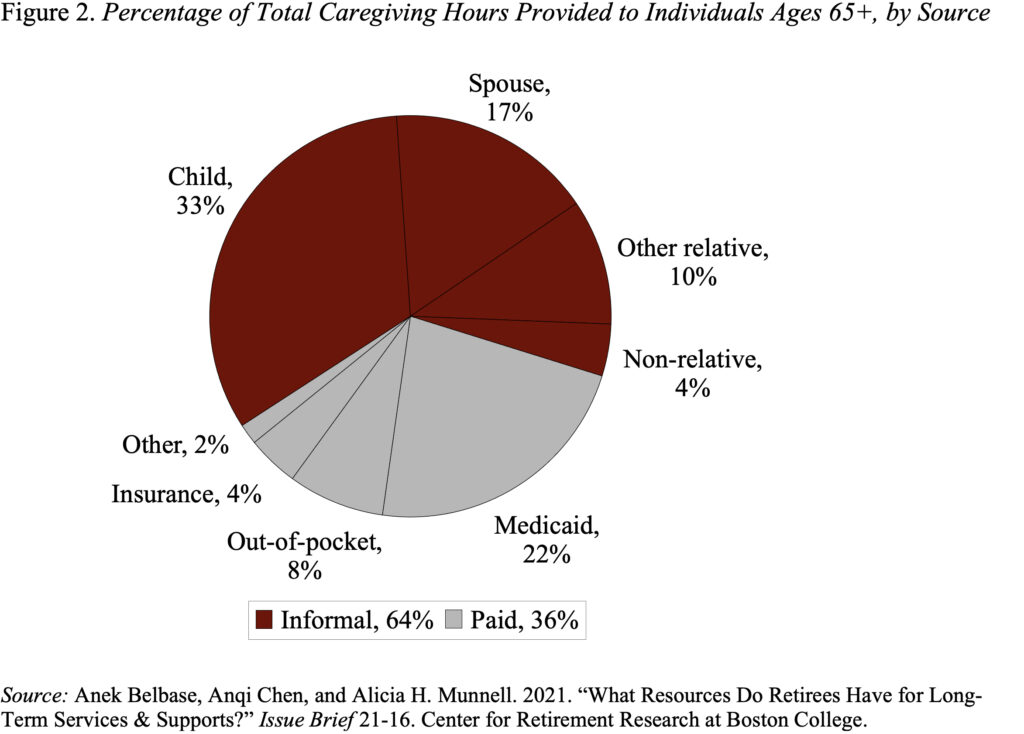
An Intriguing Idea: 5 Reasons We Should Talk About Harris’ Medicare Home-Care Benefit
Alicia H. Munnell is a columnist for MarketWatch and senior advisor of the Center for Retirement Research at Boston College.
An examination of long-term care is good for all of us.
As someone trying to become more knowledgeable about long-term care, I was surprised and intrigued by Vice President Harris’ proposal to create a new home care benefit for Medicare beneficiaries. The details of the program are still a little unclear, but it sounds like:
- It would be available to Medicare beneficiaries who need help with essential activities of daily living like bathing, eating, and toileting or have a serious cognitive impairment such as Alzheimer’s disease.
- It would cover a maximum of 20 hours of paid care per week (based on the statement in the campaign’s fact sheet that “the vast majority of seniors with long-term care needs are still able to live in their homes with an average of 20 hours or less per week of care”).
- It would pay the full cost for those with modest incomes “with a sliding scale of cost-sharing for seniors with higher incomes.”
While I had somewhat concluded that the highest priority was some form of social insurance for those who incur catastrophic long-term care costs, I’m delighted to have a conversation about a new Medicare home-care benefit for five reasons.
First, for late-career workers and retirees, the possibility of needing care later in life is a real concern. Many assume the worst case – that they will need intensive care for a long period of time. Fear of dependency makes retirees reluctant to spend their 401(k) balances, depriving themselves of necessities as they age. A debate about a limited Medicare home-care benefit might clarify that not everyone gets dementia.
Second, to the extent that people expect long-term care support from public programs, they already mistakenly think of Medicare as the primary provider. In fact, Medicare does not provide long-term care services. One possible source of confusion may be that Medicare covers up to 100 days of care in a skilled nursing facility, after a hospital stay of at least three days. Similarly, Medicare also covers some home health care services for up to 21 days and provides hospice care. But most of the care covered by Medicare is medical, short-term, and associated with an acute or terminal event. A debate about adding a home-care benefit might help clarify the limited role that Medicare plays in long-term care.
Third, Medicaid – not Medicare – is the primary payer for long-term care. But the program – which has stringent income and asset tests – is crazy complicated with coverage rules that vary by state, home care services provided at the option of the state, and various definitions of “limited” financial resources. Moreover, about 700,000 people are on waiting lists for certain types of home care services because more people are seeking these services than the states can accommodate, due to shortages in both funding and service providers. A debate about a Medicare home care benefit might shed light on the complexity and limitations of Medicaid.
Fourth, the most important conclusion that would emerge from an assessment of Medicaid is that the middle class has virtually no protections. The wealthy can self-insure and – despite the program’s complexity and limitations – those with limited finances can get some help from Medicaid. Middle-class families, however, have to rely on their own resources and the costs they face are staggering (see Figure 1). A debate about a new Medicare home care benefit could focus the attention on the cost for families facing high-intensity, long-duration care.

Finally, while Medicaid is the major payer for paid care, it covers only 22 percent of the hours required to care for those 65+ over their lifetimes (see Figure 2). The more common source of support is unpaid informal care provided by family members – primarily spouses and children. This care places an enormous physical, emotional, and financial burden on the caregivers. A debate about a Medicare home care benefit could help highlight the burden borne by unpaid caregivers.

The bottom line is that the Vice President’s proposal casts a bright light on a major problem. If it were to be enacted, lots of decisions would have to be made about who is eligible, the relationship with other Medicare benefits, the relationship to Medicaid benefits, and how the cost would be covered. I also hope that the debate includes some discussion about whether resources for long-term care should go to first-dollar coverage for everyone as opposed to creating a program that covers catastrophic costs. My gut is the most families can deal with a year or less of low to medium intensity care; the people who really need help are those who face many years of high intensity care as a result of dementia or some other debilitating long-term aliment. In any event, a serious discussion of the long-term care issue will be good for all of us.







